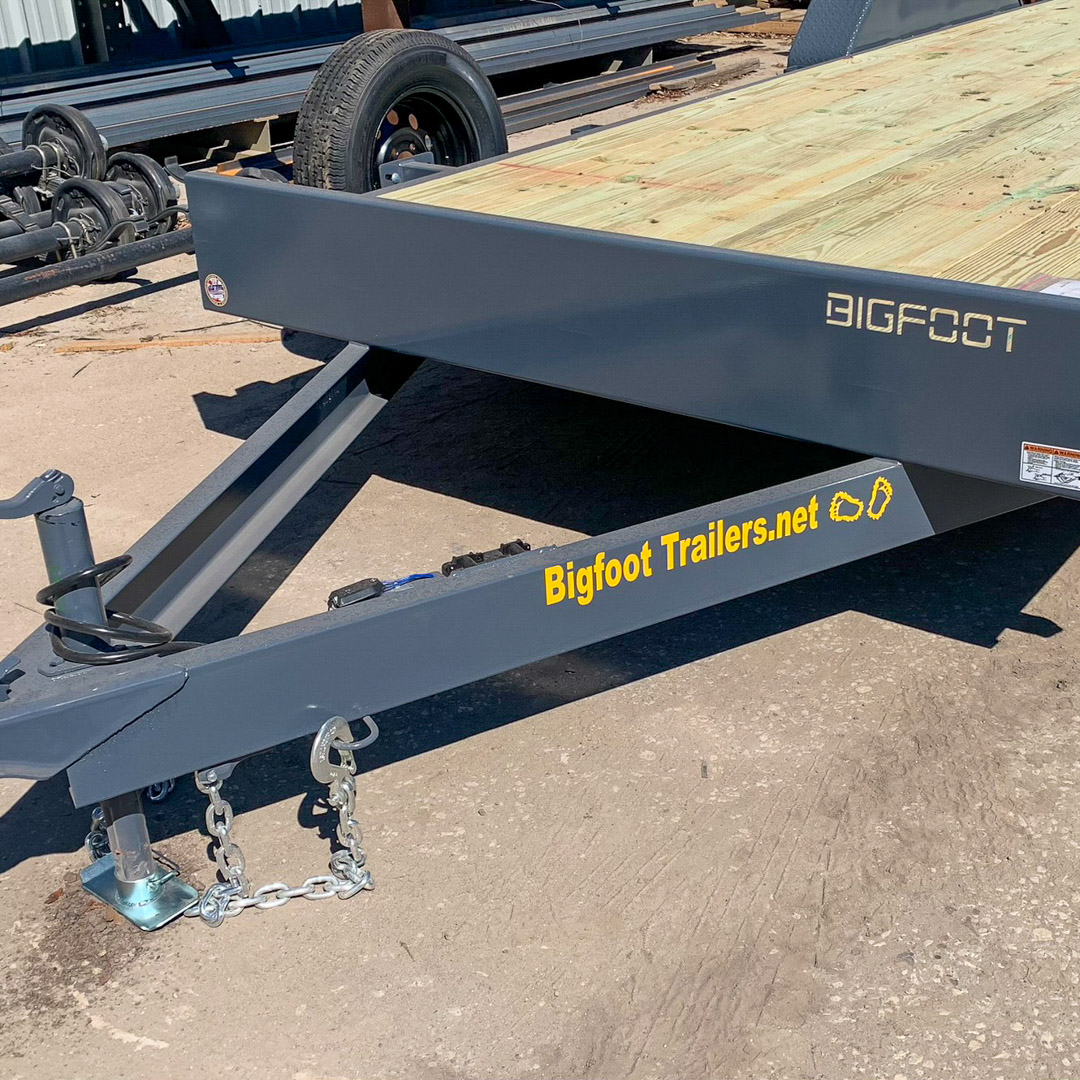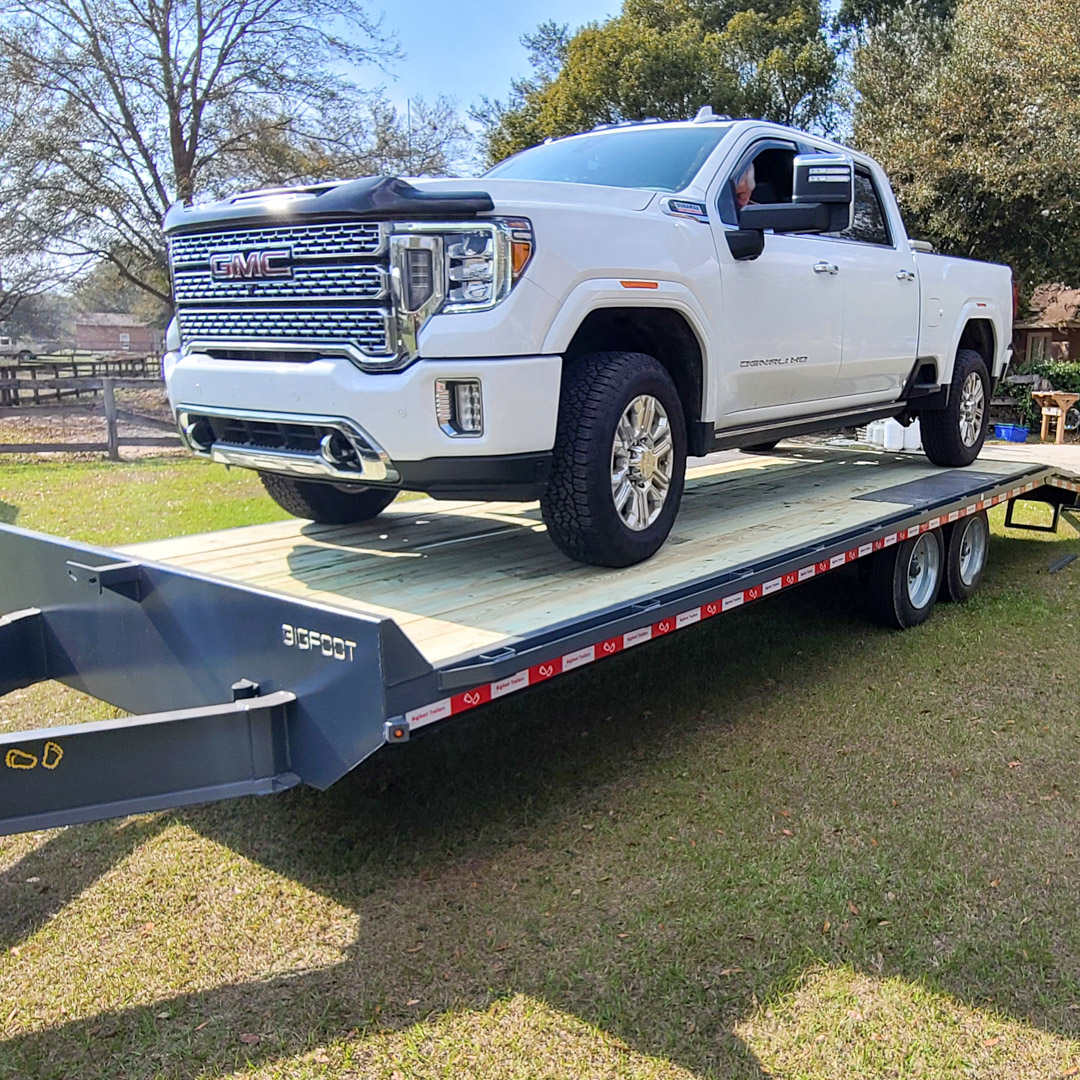Guide To Measuring Tongue Weight
Hitching an equipment trailer to your truck for transporting payloads is much easier than driving a semi-truck. However, it requires the same care as any commercial vehicle. For example, before leaving the yard, you must inspect the tires, brakes, and wiring harness, among others, to ensure everything works correctly. However, there is one other critical component to check, and it’s called the tongue weight. What is it? Bigfoot’s guide to measuring tongue weight has everything you need to know.
 What is Tongue Weight?
What is Tongue Weight?
Remember your childhood memories of riding up and down on a seesaw? The tongue weight is the downward force exerted by the trailer’s tongue on the tow vehicle’s hitch ball, like the weight on one end of the seesaw. Ideally, you want this weight to be evenly distributed for optimal stability and control while towing.
Why is Tongue Weight Important?
Proper tongue weight distribution is essential for several reasons:
Stability: Too little weight on the tongue can cause trailer sway, creating a dangerous fishtailing effect. Conversely, too much weight can overload the hitch and tow vehicle, affecting handling and braking.
Braking: Correct tongue weight ensures proper weight distribution on all the axles, leading to better steering response and braking performance for both the trailer and tow vehicle.
Prevents Damage: Exceeding the recommended tongue weight can damage the hitch, trailer frame, and even the tow vehicle.
How Do I Calculate Tongue Weight?
There are several ways to determine your trailer’s tongue weight, but the following two options are the simplest, safest, and most reliable. Consult your trailer’s manual for the recommended tongue weight range, usually expressed as a percentage of the trailer’s Gross Vehicle Weight Rating (GVWR).
Tongue Weight Scale
This is the simplest and most accurate method. It is a handy device that attaches directly to your trailer’s hitch and measures the weight as you lower the tongue onto the scale. Look for scales with a capacity exceeding your expected tongue weight.
Commercial Vehicle Scale
A commercial vehicle scale is your next best option if you don’t have a tongue weight scale. Truck stops are located on major turnpikes, interstates, and highways up and down the East Coast and across the U.S.

Most truck stops have commercial scales that weigh your entire rig with and without the trailer. Subtracting the weights will reveal the tongue weight. When traveling, carry a list of truck stops to ensure your trailer is within safe weight limits while on the road.
The tongue weight should be between 10% and 15% of the total trailer weight. For example, if your trailer weighs 5,000 pounds, the ideal tongue weight would be between 500 and 750 pounds.
Where to Buy Equipment Trailers Near Me
Bigfoot Trailers delivers! As a factory-direct manufacturer, we service the entire Eastern United States with locations in Amherst, VA; Jacksonville, FL; Raleigh, NC; Philadelphia, PA; and by appointment with retailers in Fort Myers and Marianna, FL. Call toll-free (866) 764-8878 or contact us for a free quote.




